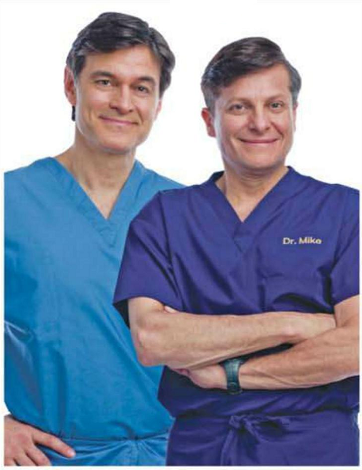The endless headlines about vitamin D,
calcium and vitamin E create more confusion than Hurricane Irene did! Don't
know what guidelines to swallow? Here's what we take and why:
We don’t take any vitamin D. We take vitamin D3.
D3 is the most active form and the kind
your body makes naturally when sunlight hits your skin. For decades, vitamin D
was seen mainly as a wingman for calcium, helping it build bones. But then scientists
began announcing one potent power after another: Vitamin D fights cancer. And
diabetes, hypertension, multiple sclerosis, and more. Low levels trigger
obesity in kids. And asthma, digestive woes and pneumonia. The research was
good, the findings important.
It also became clear that low D3 was
nearly epidemic.
Then came the inevitable aftermath:
hyper-marketing of megadoses of D3, (like 10 OOOIU a day) on the internet.
Megadoses of D3 can wreak havoc on your kidneys and arteries. Should you take
D3? Absolutely. In fact, you almost have to, because it's tough to get enough
from food or even from sunlight.
How to get the right amount
• Get as much as you can from food. There's
a fair amount in canned tuna, sardines, eggs and vitamin D-fortified dairy
foods, orange juice and cereals.
• Get your D3 levels tested if you
suspect you're low. You probably are if you have dark skin, always wear
sunscreen and a hat, are obese, are elderly or have trouble digesting fats. The
blood test can be fluky so if you get an extreme result, ask your doc to run it
again.
• If your D3 levels are okay, cap your
total daily intake at 1 000 lU. Make that 1 200 after 60. That includes what
you get from food and a multivitamin.
We aim for 1 200mg of calcium a day. But we get half of it
from food.
Here's the challenge with calcium: It's
kind of easy to get too much, and that can hurt your kidneys, including causing
painful kidney stones. Ouch. (A recent report claimed that calcium pills don't
help bones and might hurt your heart, but the study had big flaws. We're not
buying that data yet.)
• Get as much as you can from food. Calcium
abounds in dairy products, spinach, canned salmon and sardines. There's also some
in broccoli and kale.
• Get the rest from a supplement. Buy
a combo form with 400mg to 500mg of magnesium - it keeps calcium from making
you constipated - and some D3, to help absorption. Count this in your D3 total.
• Buy calcium citrate. It's the most
easily absorbed.
• Space out your intake. Your body can
absorb only so much calcium at once, so if you have milk and cereal for breakfast,
take your calcium later.
We don't take any vitamin E except the 30IU in our
multivitamin (and yours).
At one time, vitamin E was the king of antioxidants,
credited with all kinds of anti-aging, disease-fighting powers. Then came study
after study showing that taking more than 400IU of vitamin E a day actually increased
deaths from any cause. Turned out that while antioxidants like E may fight oxidation
damage in the blood, they sometimes cause it inside your cells. Worse, we're now
hearing early reports that E encourages certain hormonally driven cancers. So, do
not take more than 30IU. There's very little E in food (unless you suck down
wheat-germ oil), so no worries there. What's in your multivitamin will cover
you. Whew!